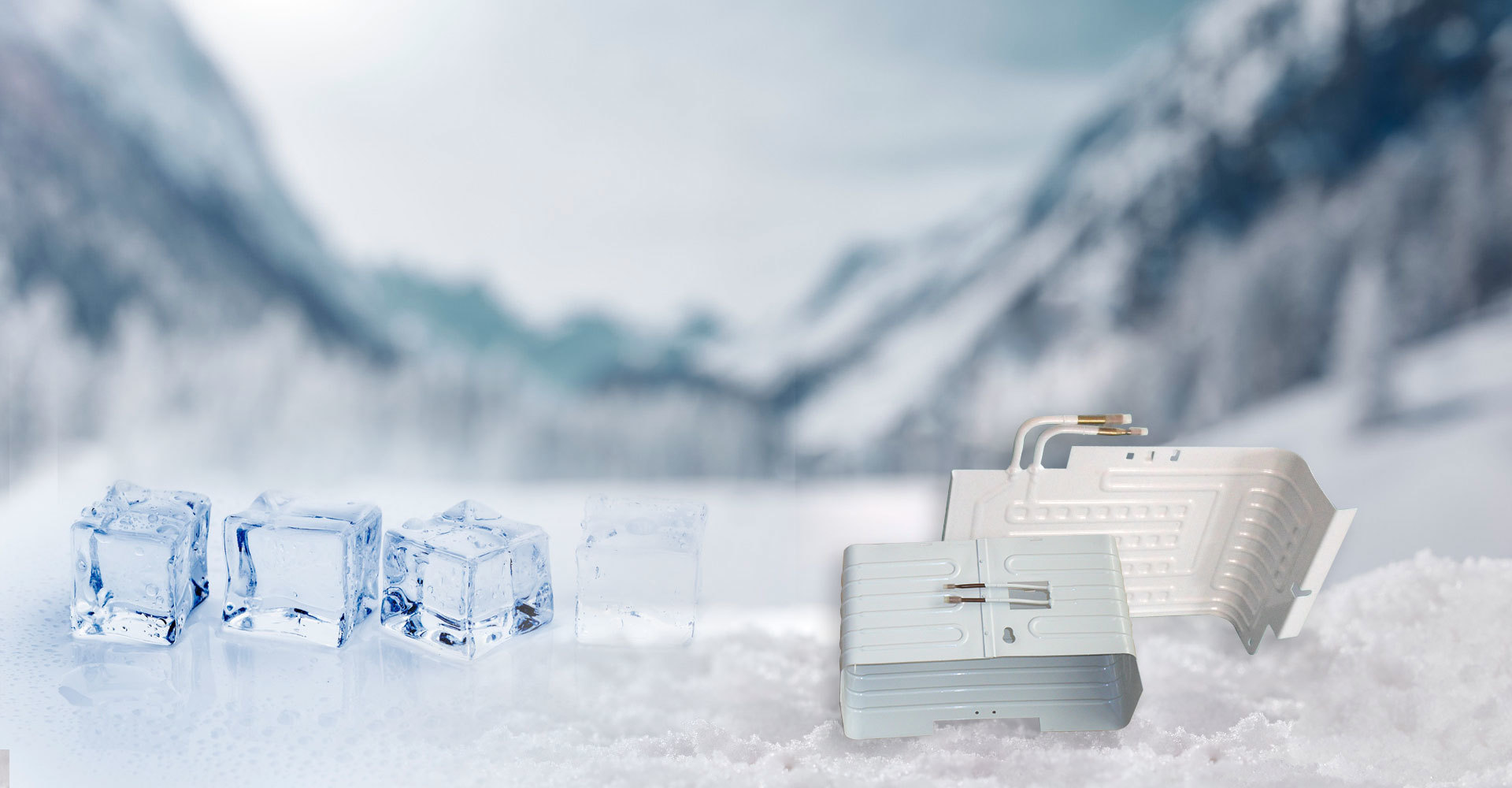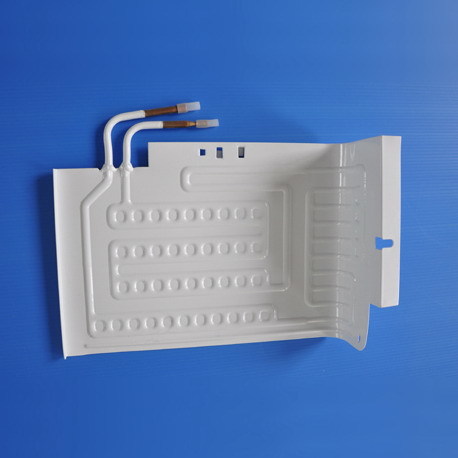How Aluminum Plate Evaporators Enhance Heat Transfer Efficiency
How Aluminum Plate Evaporators Enhance Heat Transfer Efficiency Table of Contents 1. Introduction to Aluminum Plate Evaporators 2. The Science Behind Heat Transfer 3. Advantages of Using Aluminum Plate Evaporators 3.1. Improved Thermal Conductivity 3.2. Compact Design and Space Efficiency 3.3. Enhanced Durability and Corrosion Resistance 3.4. Energy Efficiency and Cost Savings 4. Applications of A
Published:
2025-10-15
source:
author:
How Aluminum Plate Evaporators Enhance Heat Transfer Efficiency
Table of Contents
1. Introduction to Aluminum Plate Evaporators
2. The Science Behind Heat Transfer
3. Advantages of Using Aluminum Plate Evaporators
3.1. Improved Thermal Conductivity
3.2. Compact Design and Space Efficiency
3.3. Enhanced Durability and Corrosion Resistance
3.4. Energy Efficiency and Cost Savings
4. Applications of Aluminum Plate Evaporators
4.1. Refrigeration and Air Conditioning
4.2. Chemical Processing
4.3. Food and Beverage Industry
5. Operational Considerations for Aluminum Plate Evaporators
5.1. Maintenance Best Practices
5.2. Selecting the Right Evaporator Size
6. Conclusion
7. Frequently Asked Questions (FAQs)
1. Introduction to Aluminum Plate Evaporators
Aluminum plate evaporators represent a significant advancement in thermal management technology. These components are integral in various industries where precise temperature control is crucial. Unlike traditional evaporators, aluminum plate evaporators utilize a unique design that significantly enhances heat transfer efficiency. This article explores how these innovative devices function, their advantages, and their diverse applications.
2. The Science Behind Heat Transfer
Understanding the principles of heat transfer is essential to appreciate the innovations presented by aluminum plate evaporators. Heat transfer occurs through three primary mechanisms: conduction, convection, and radiation. In the context of evaporators, conduction and convection are particularly relevant.
Conduction is the transfer of heat through materials, while convection involves the movement of fluids that carry heat away. Aluminum plate evaporators maximize both processes, resulting in superior thermal performance.
3. Advantages of Using Aluminum Plate Evaporators
Aluminum plate evaporators offer multiple advantages that enhance their effectiveness in various applications.
3.1. Improved Thermal Conductivity
Aluminum is known for its excellent thermal conductivity, which allows for quicker and more efficient heat transfer. This property ensures that the evaporator can perform optimally, reducing the time needed to achieve desired temperatures.
3.2. Compact Design and Space Efficiency
The design of aluminum plate evaporators is inherently compact, making them ideal for environments with limited space. Their slim profiles allow for easy integration into existing systems without requiring extensive modifications.
3.3. Enhanced Durability and Corrosion Resistance
Aluminum naturally resists corrosion, which is crucial in environments where moisture and chemicals are present. This durability extends the lifespan of the evaporator, reducing the need for frequent replacements and maintenance.
3.4. Energy Efficiency and Cost Savings
By improving heat transfer efficiency, aluminum plate evaporators can lead to significant energy savings. Reduced energy consumption not only lowers operational costs but also contributes to a more sustainable environment, making them an excellent choice for eco-conscious businesses.
4. Applications of Aluminum Plate Evaporators
Aluminum plate evaporators are versatile components used across multiple industries.
4.1. Refrigeration and Air Conditioning
In refrigeration and air conditioning systems, aluminum plate evaporators are crucial for maintaining low temperatures and ensuring optimal performance. Their efficiency helps reduce energy consumption and enhances cooling capabilities.
4.2. Chemical Processing
In chemical processing, precise temperature control is vital. Aluminum plate evaporators facilitate efficient heat exchange, ensuring that reactions occur at the desired rates and temperatures, thereby optimizing production processes.
4.3. Food and Beverage Industry
In the food and beverage sector, maintaining the right temperatures is essential for safety and quality. Aluminum plate evaporators help achieve the necessary cooling while minimizing energy consumption, making them indispensable in this industry.
5. Operational Considerations for Aluminum Plate Evaporators
While aluminum plate evaporators are highly efficient, certain operational considerations must be addressed to ensure optimal performance.
5.1. Maintenance Best Practices
Regular maintenance is key to maximizing the lifespan and efficiency of aluminum plate evaporators. This includes routine inspections, cleaning, and prompt repairs of any leaks or damages. Ensuring that the evaporator operates within its designated parameters can prevent unnecessary wear and prolong its service life.
5.2. Selecting the Right Evaporator Size
Choosing the appropriate size of an aluminum plate evaporator is crucial for achieving optimal performance. An evaporator that is too small may struggle to meet demand, while one that is too large can lead to inefficiencies and increased costs. It is vital to conduct a thorough analysis of your system's requirements before making a selection.
6. Conclusion
In conclusion, aluminum plate evaporators significantly enhance heat transfer efficiency across various industries thanks to their superior thermal conductivity, compact design, durability, and energy-saving capabilities. Understanding their advantages and applications can aid in making informed decisions for industrial processes. By incorporating aluminum plate evaporators into your systems, you can improve operational efficiency, reduce costs, and contribute to a more sustainable future.
7. Frequently Asked Questions (FAQs)
What is an aluminum plate evaporator?
An aluminum plate evaporator is a thermal management component that enhances heat transfer efficiency by utilizing aluminum's superior thermal conductivity in a compact design.
How does an aluminum plate evaporator differ from traditional evaporators?
Unlike traditional evaporators, aluminum plate evaporators utilize plates to maximize surface area for heat transfer, resulting in improved efficiency and reduced energy consumption.
What industries benefit from aluminum plate evaporators?
Aluminum plate evaporators are used in various industries, including refrigeration, chemical processing, and food and beverage production, where efficient heat transfer is crucial.
How do I maintain an aluminum plate evaporator?
Regular maintenance involves routine inspections, cleaning to prevent buildup, and immediate repairs of any leaks to ensure optimal performance and longevity.
Why is energy efficiency important for aluminum plate evaporators?
Energy efficiency reduces operational costs and environmental impact, making aluminum plate evaporators not only economically beneficial but also a sustainable choice for businesses.
This comprehensive exploration of aluminum plate evaporators and their efficiency provides a clear insight into their importance in modern industrial applications. By leveraging these innovative devices, industries can enhance their thermal management systems significantly.
Hot News
Mobile website

language
English
العربية
বাংলাদেশ
Български
Hrvatski
Česky
Dansk
Nederland
 Esperanto
Esperanto
Slovenski
Filipino
Suomi
Français
Maori
 Shqiptare
Shqiptare
Georgian
 Euskara
Euskara
Deutsch
Ελλάδα
ישראל
इंडिया
Magyarország
Ísland
Indonesia
Irlanda
Italia
日本語
Sovensko
Հայաստան
한국
Kyrgyz
ປະເທດລາວ
 Zulu
Zulu
Latvian
Lithuanian
Luxembourgish
 Latinus
Latinus
Macedonian
Малайская
Maltese
Монгол улс
 Cymraeg
Cymraeg
ဗမာ
 தமிழ்
தமிழ்
नेपाल
Norge
ایران
Polska
Portugal
România
Российская
Србија
 Slovak
Slovak
Србија
 Slovak
Slovak
Bosanski
Slovenian
Беларус
España
Sverige
Точик
ประเทศไทย
Türk
Azərbaycan
Uzbek
 Afrikaans
Afrikaans
Việt Nam
Tel: 0086-13775291367
E-mail: michael@xinxincool.com
ADD:No. 32 Tianshan Road, Xinqiao Town, Xinbei District, Changzhou City, Jiangsu Province
Copyright © 2024 Changzhou Xinxin Refrigeration Equipment Co., Ltd.





